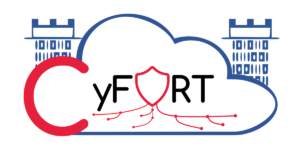

Interview with Lëtzebuerger Gemengen, translation by itrust consulting.
In a context of constantly evolving and increasingly sophisticated cyber threats, cybersecurity experts are not standing still, as demonstrated by the CyFORT project. Carlo Harpes and Arash Atashpendar, respectively Managing Director and Head of R&D/CTO at itrust consulting and itrust Abstractions Lab, explain why.
Can you briefly present the CyFORT project?
Carlo Harpes: CyFORT, short for "Cloud Cybersecurity Fortress of Open Resources and Tools for Resilience", is a research project aimed at developing a series of open-source cybersecurity software tools with a focus on cloud computing. As free and open-source software, all CyFORT cybersecurity tools and their technical documentation will be made publicly available online. These permissive licenses allow anyone not only to study our tools, but also to adapt, modify and customize them to suit their needs, without being subject to what we call vendor lock-in.
Is there a specific tool already developed as part of this project?
Arash Atashpendar: Of the six CyFORT sub-projects, today we'll be focusing on the one that's at the most advanced stage of development, namely C5-DEC, short for "Common Criteria for Cybersecurity, Cryptography, Clouds - Design, Evaluation and Certification".
C5-DEC aims at providing an impartial assessment of the security of IT systems and software in line with Common Criteria (CC), a set of internationally recognized standards (ISO/IEC 15408), as well as the complementary methodology ISO/IEC 18045, which deals with a common methodology for the evaluation of IT security (CEM). CC certification gives users the assurance that a product complies with the security guarantees it claims.
C5-DEC consists of two key elements: a software package and a knowledge base containing guides and a wiki of key CC concepts. These elements form a coherent set, covering tools for CC, secure software development and security assessment of cyber-physical systems.
How does C5-DEC improve the product development processes?
Arash Atashpendar: The CC and CEM standards, which are complex and the result of the efforts of multiple countries since 1980, contain extensive security requirements and are methodologically arduous. Certification processes, involving suppliers and laboratories, are often costly and time-consuming. C5-DEC makes these procedures more accessible and efficient, with a CC database, tools for evaluation reports, and checklists. It supports analysts and designers with comprehensive databases for safety design and evaluation.
Are there any other particular features of C5-DEC worth highlighting?
Arash Atashpendar: C5-DEC's secure software development module stores and interconnects specifications, source code and tests for complete traceability. The import/export functions and cryptographic operations make it possible to secure the creation and distribution of software.
C5-DEC integrates and relies on other open-source solutions such as doorstop-dev, asciimatics, OpenProject, GitLab, threagile and Threat Dragon for some of its functionalities such as requirements and artefact management, system design and testing, threat modelling and security risk assessment.
For which users is your solution aimed?
Carlo Harpes: Our target audience includes software designers and CC experts, with a current focus on coaching developers. We are currently looking for a few customers for training on C5-DEC. They would receive free coaching in exchange for written feedback on their use of our tool. Typically, I'm thinking of a number of concrete cases, such as the roll-out of Luxchat, or the mobile application for filing electronic complaints, or even the sending of an electronic sickness certificate to the CCSS and the employer by doctors, with the patient's consent.
Could you give us an example of a practical application?
Carlo Harpes: Imagine the supplier of a smart card wishing to have its product certified for IT security, either because of regulatory recommendations (GDPR, NISS) or simply to build trust among its users.
Designers using C5-DEC can filter CC requirements and focus on security requirements, as well as assurance activities related to cryptography, and use elements of the knowledge base.
Evaluation laboratories can in turn use the evaluation-oriented functionality. For example, it has already been used internally as part of a project for a public sector customer, as well as in research projects for the European Commission and the European Space Agency (ESA), or for the specification of a cryptographic tool.
What are the next developments for C5-DEC?
Arash Atashpendar: We will be updating C5-DEC based on feedback from users, but also on what we discover when using it in the field. We also plan to adapt its future development to the online tool Fit4CSA, recently published by ILNAS as part of the CORAL project. Finally, we want to better adapt our software to the specifics of the EU Cybersecurity Act or CSA (EU regulation 2019/881), for which C5-DEC already provides certain functionalities.
How and when will C5-DEC be released?
Arash Atashpendar: The alpha version of C5-DEC is scheduled for release on 1 December 2023 on the well-known GitHub platform via the following link: https://github.com/AbstractionsLab.
